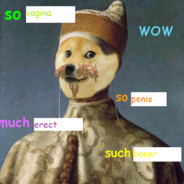- cross-posted to:
- history@lemmy.world
- history
- cross-posted to:
- history@lemmy.world
- history
cross-posted from: https://lemm.ee/post/10358195
The road from Rome
The fall of the Roman Empire wasn’t a tragedy for civilisation. It was a lucky break for humanity as a whole
For an empire that collapsed more than 1,500 years ago, ancient Rome maintains a powerful presence. About 1 billion people speak languages derived from Latin; Roman law shapes modern norms; and Roman architecture has been widely imitated. Christianity, which the empire embraced in its sunset years, remains the world’s largest religion. Yet all these enduring influences pale against Rome’s most important legacy: its fall. Had its empire not unravelled, or had it been replaced by a similarly overpowering successor, the world wouldn’t have become modern.
This isn’t the way that we ordinarily think about an event that has been lamented pretty much ever since it happened. In the late 18th century, in his monumental work The History of the Decline and Fall of the Roman Empire (1776-1788), the British historian Edward Gibbon called it ‘the greatest, perhaps, and most awful scene in the history of mankind’. Tankloads of ink have been expended on explaining it. Back in 1984, the German historian Alexander Demandt patiently compiled no fewer than 210 different reasons for Rome’s demise that had been put forward over time. And the flood of books and papers shows no sign of abating: most recently, disease and climate change have been pressed into service. Wouldn’t only a calamity of the first order warrant this kind of attention?
It’s true that Rome’s collapse reverberated widely, at least in the western – mostly European – half of its empire. (A shrinking portion of the eastern half, later known as Byzantium, survived for another millennium.) Although some regions were harder hit than others, none escaped unscathed. Monumental structures fell into disrepair; previously thriving cities emptied out; Rome itself turned into a shadow of its former grand self, with shepherds tending their flocks among the ruins. Trade and coin use thinned out, and the art of writing retreated. Population numbers plummeted.
But a few benefits were already being felt at the time. Roman power had fostered immense inequality: its collapse brought down the plutocratic ruling class, releasing the labouring masses from oppressive exploitation. The new Germanic rulers operated with lower overheads and proved less adept at collecting rents and taxes. Forensic archaeology reveals that people grew to be taller, likely thanks to reduced inequality, a better diet and lower disease loads. Yet these changes didn’t last.
The real payoff of Rome’s demise took much longer to emerge. When Goths, Vandals, Franks, Lombards and Anglo-Saxons carved up the empire, they broke the imperial order so thoroughly that it never returned. Their 5th-century takeover was only the beginning: in a very real sense, Rome’s decline continued well after its fall – turning Gibbon’s title on its head. When the Germans took charge, they initially relied on Roman institutions of governance to run their new kingdoms. But they did a poor job of maintaining that vital infrastructure. Before long, nobles and warriors made themselves at home on the lands whose yield kings had assigned to them. While this relieved rulers of the onerous need to count and tax the peasantry, it also starved them of revenue and made it harder for them to control their supporters.
When, in the year 800, the Frankish king Charlemagne decided that he was a new Roman emperor, it was already too late. In the following centuries, royal power declined as aristocrats asserted ever greater autonomy and knights set up their own castles. The Holy Roman Empire, established in Germany and northern Italy in 962, never properly functioned as a unified state. For much of the Middle Ages, power was widely dispersed among different groups. Kings claimed political supremacy but often found it hard to exercise control beyond their own domains. Nobles and their armed vassals wielded the bulk of military power. The Catholic Church, increasingly centralised under an ascendant papacy, had a lock on the dominant belief system. Bishops and abbots cooperated with secular authorities, but carefully guarded their prerogatives. Economic power was concentrated among feudal lords and in autonomous cities dominated by assertive associations of artisans and merchants.
Read more through the link. And join lemm.ee/c/history
It’s a bit of exceptionalist theory, that even ties in the death of the dinosaurs into how eventually western civilization ended up on top.
The one think it does it’s turning around the rise and fall narrative (which no academic takes seriously) and proclaims that the incredible European progress was facilitated by the fall.
Honestly it’s quite post hoc ergo propter hoc, ‘it has turned out this way, die it had to be this way’ kind of reasoning.
It goes over great tracks of history, without even indulging any idea that history could’ve been different.
It feels rather grandiose, but it’s mainly drivel.


